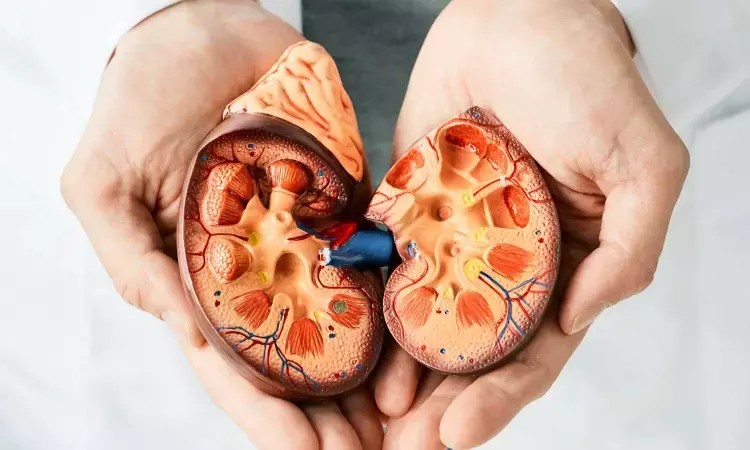- Home
- Medical news & Guidelines
- Anesthesiology
- Cardiology and CTVS
- Critical Care
- Dentistry
- Dermatology
- Diabetes and Endocrinology
- ENT
- Gastroenterology
- Medicine
- Nephrology
- Neurology
- Obstretics-Gynaecology
- Oncology
- Ophthalmology
- Orthopaedics
- Pediatrics-Neonatology
- Psychiatry
- Pulmonology
- Radiology
- Surgery
- Urology
- Laboratory Medicine
- Diet
- Nursing
- Paramedical
- Physiotherapy
- Health news
- Fact Check
- Bone Health Fact Check
- Brain Health Fact Check
- Cancer Related Fact Check
- Child Care Fact Check
- Dental and oral health fact check
- Diabetes and metabolic health fact check
- Diet and Nutrition Fact Check
- Eye and ENT Care Fact Check
- Fitness fact check
- Gut health fact check
- Heart health fact check
- Kidney health fact check
- Medical education fact check
- Men's health fact check
- Respiratory fact check
- Skin and hair care fact check
- Vaccine and Immunization fact check
- Women's health fact check
- AYUSH
- State News
- Andaman and Nicobar Islands
- Andhra Pradesh
- Arunachal Pradesh
- Assam
- Bihar
- Chandigarh
- Chattisgarh
- Dadra and Nagar Haveli
- Daman and Diu
- Delhi
- Goa
- Gujarat
- Haryana
- Himachal Pradesh
- Jammu & Kashmir
- Jharkhand
- Karnataka
- Kerala
- Ladakh
- Lakshadweep
- Madhya Pradesh
- Maharashtra
- Manipur
- Meghalaya
- Mizoram
- Nagaland
- Odisha
- Puducherry
- Punjab
- Rajasthan
- Sikkim
- Tamil Nadu
- Telangana
- Tripura
- Uttar Pradesh
- Uttrakhand
- West Bengal
- Medical Education
- Industry
Febuxostat has protective effect against contrast induced AKI

A new study published in BMC Nephrology suggests that febuxostat has renal protective effects and may help reduce the incidence of Contrast-induced acute kidney injury (CI-AKI) in chronic kidney disease (CKD) stage 3 patients undergoing percutaneous coronary intervention (PCI).
Contrast-induced acute kidney injury can be a complication of intravascular contrast injection. Unfortunately, this is associated with adverse outcomes such as prolonged hospitalization and increased healthcare costs. Therefore, Iman Ibrahim Sarhan and team conducted this study to determine the efficacy of febuxostat in preventing contrast-induced acute kidney injury in patients with stage 3 CKD undergoing percutaneous coronary intervention.
A randomized controlled trial included 120 patients with CKD stage 3 acute coronary syndrome referred to the cardiology department of Ain-Shams University Hospital for PCI and stenting. Patients were randomly divided into two groups: Group I (study group): included 60 patients who received febuxostat in addition to standard treatment (iv hydration and N-acetylcysteine). Patients received Feburic 80 mg 6 to 18 hours before and 6 to 18 hours after the coronary procedure (24-hour interval between two doses). Group II (control group): included 60 patients who received only conventional treatment.
The key findings of this study were:
The incidence of AKI was higher in the control group with a statistically significant difference.
It was found that febuxostat avoidance, DM, high urea level, high creatinine level, chronic disease stage 3B, high Mehran score and high risk of AKI were independent significant risk factors leading to AKI.
In conclusion, this study showed that febuxostat has a renoprotective effect. This may reduce the incidence of CI-AKI in CKD stage 3 patients undergoing PCI. Despite limited studies on the use of febuxostat for protection against CI-AKI in patients with CKD, researchers recommend its use in patients with stage 3 CKD, especially in patients with hyperuricemia. In acute kidney injury risk scores, it is recommended to stratify patients before contrast administration in CKD patients and individualize contrast agent type, volume, and preventive measures according to the results of these scores.
Reference:
Sarhan, I. I., Abdellatif, Y. A., Saad, R. E., & Teama, N. M. (2023). Renoprotective effect of febuxostat on contrast-induced acute kidney injury in chronic kidney disease patients stage 3: randomized controlled trial. In BMC Nephrology (Vol. 24, Issue 1). Springer Science and Business Media LLC. https://doi.org/10.1186/s12882-023-03114-4
Neuroscience Masters graduate
Jacinthlyn Sylvia, a Neuroscience Master's graduate from Chennai has worked extensively in deciphering the neurobiology of cognition and motor control in aging. She also has spread-out exposure to Neurosurgery from her Bachelor’s. She is currently involved in active Neuro-Oncology research. She is an upcoming neuroscientist with a fiery passion for writing. Her news cover at Medical Dialogues feature recent discoveries and updates from the healthcare and biomedical research fields. She can be reached at editorial@medicaldialogues.in
Dr Kamal Kant Kohli-MBBS, DTCD- a chest specialist with more than 30 years of practice and a flair for writing clinical articles, Dr Kamal Kant Kohli joined Medical Dialogues as a Chief Editor of Medical News. Besides writing articles, as an editor, he proofreads and verifies all the medical content published on Medical Dialogues including those coming from journals, studies,medical conferences,guidelines etc. Email: drkohli@medicaldialogues.in. Contact no. 011-43720751


